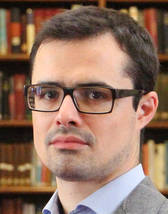Lone-actor terrorism is not a new phenomenon; however, research suggests the threat is increasing as pressure from security services forces a tactical adaptation and groups call on those who share their ideology to act alone without direction or support
Countering Lone-Actor Terrorism Series: No. 1
This paper is the first publication in the Countering Lone-Actor Terrorism (CLAT) project, which aims to improve understanding of, and responses to, the phenomenon of (potentially) violent lone actors through analysis of comprehensive data on cases from across Europe.
Despite recent depictions within the media, lone-actor terrorism is not a new phenomenon; however, research suggests the threat is increasing as pressure from security services forces a tactical adaptation and groups – including Daesh (also known as the Islamic State of Iraq and Syria, ISIS) – call on those who share their ideology to act alone without direction or support. This paper examines the current state of knowledge surrounding the phenomenon, assessing the limitations of the literature and identifying where further research should focus to add real value to countering the threat. Three recommendations are made: first, increased methodological rigour in empirical research; second, focus on process as well as perpetrators; and third, specific examination of the confluence between returning foreign fighters, domestic Daesh supporters, and the lone-actor threat.
About the Authors
Raffaello Pantucci is Director of International Security Studies at RUSI. He has worked at think tanks in London, Washington and Shanghai, and his work on terrorism has been published in Studies in Conflict and Terrorism, Terrorism and Political Violence, Survival, the RUSI Journal, as well as media outlets including the Times, Guardian, Sunday Times, New York Times, Financial Times and Prospect. He is the author of We Love Death as You Love Life: Britain’s Suburban Terrorists (Hurst/Oxford University Press, 2015).
Clare Ellis is a Research Analyst in the National Security and Resilience Studies Group at RUSI. Her research interests include counter-terrorism, organised crime and the changing demands placed on UK policing. Prior to joining RUSI she worked in the criminal-justice sector, first within criminal defence and later within the police. Clare holds an MSc with Distinction in Countering Organised Crime and Terrorism from University College London. She has also studied at the University of Newcastle and the Université Lumière Lyon 2, holding a Bachelor’s degree in Law with French.
Lorien Chaplais is a Research Assistant in the National Security and Resilience Studies Group at RUSI. Her research has focused on counter-terrorism, the lone-actor threat, and counter violent extremism projects. She holds an MA from the Department of War Studies at King’s College London, where her dissertation examined the inadequacy of international law in the age of transnational terrorism. She has also completed studies at Goldsmiths University of London, holding a Bachelor’s degree in Anthropology and Sociology.
About the Project
The Countering Lone-Actor Terrorism (CLAT) project is co-funded by the Prevention of and Fight against Crime Programme of the European Union, and has been undertaken by a RUSI-led consortium. Partnering institutions include Chatham House, the Institute for Strategic Dialogue (ISD) and Leiden University, one of the founding organisations of the International Centre for Counter-Terrorism (ICCT) at The Hague.
WRITTEN BY
Raffaello Pantucci
RUSI Senior Associate Fellow, International Security


